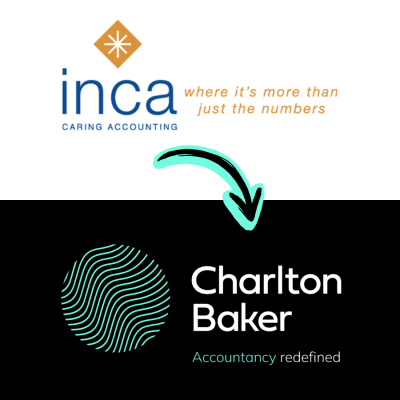Inca Accountants is now Charlton Baker

If you were looking for Inca Accountants then you've come to the right place!
We're very happy to announce that Inca Accountants has become Charlton Baker.

It's exciting that Inca Accountants has joined Charlton Baker.
We've have been redefining accountancy for years, working tirelessly for our clients' financial freedom. If you would like to know more about Charlton Baker and our history, please visit Our Story page.
Our list of services include:

What do I do if I'm an existing Inca Accountants client?
There's nothing for you to do! Carry on as you normally would.
You'll still get the amazing service and quality you've come to expect from Inca Accountants, but you'll also be able to benefit from the wider knowledge and array of services now offered as part of Charlton Baker.
You'll notice over the next few months that the Inca Accountants logo and contact details will start to disappear on communications and be replaced by Charlton Baker ones.
Please contact us by email or call us on 01235 868888 if you have any questions.

